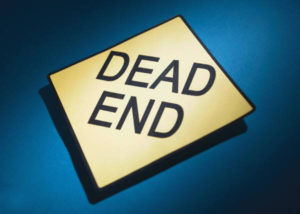 It’s 4/16 and most people have completed their personal and business tax returns by now. Many people have also paid their 2012 taxes due and 2013 first installment payment. If you are one of the people that hit a dead end instead of the tax deadline, you are not alone.
It’s 4/16 and most people have completed their personal and business tax returns by now. Many people have also paid their 2012 taxes due and 2013 first installment payment. If you are one of the people that hit a dead end instead of the tax deadline, you are not alone.
Missing the tax reporting and payment deadline is a slippery slope. Anxiety and fear can cause folks to avoid the subject all together and late filing turns into no filing, turns into years of no filing. I have helped many folks catch up on their taxes. People that are catching up on tax returns and payments move from fear and anxiety to joyfulness. It is a celebration each time we send another year off the to CPA for reporting.
Below is some advice from the IRS. ‘Pay as much as you can’ is great advice. You can pay online. If you are behind in tax payments, get signed up for online payments. Pay as much as you can when you can. Pay monthly, weekly, daily, just get moving. Waiting until you have a few hundred or a few thousand dollars saved up to pay all the tax due may be a self-created road block that stops you from paying. Minimize penalties and interest and pay what you can whenever you can.
The IRS has some advice for taxpayers who missed the tax filing deadline.
- File as soon as possible. If you owe federal income tax, you should file and pay as soon as you can to minimize any penalty and interest charges. There is no penalty for filing a late return if you are due a refund.
- Penalties and interest may be due. If you missed the April 15 deadline, you may have to pay penalties and interest. The IRS may charge penalties for late filing and for late payment. The law generally does not allow a waiver of interest charges. However, the IRS will consider a reduction of these penalties if you can show a reasonable cause for being late.
- E-file is your best option. IRS e-file programs are available through Oct. 15. E-file is the easiest, safest and most accurate way to file. With e-file, you will receive confirmation that the IRS has received your tax return. If you e-file and are due a refund, the IRS will normally issue it within 21 days.
- Free File is still available. Everyone can use IRS Free File. If your income is $57,000 or less, you qualify to e-file your return using free brand-name software. If you made more than $57,000 and are comfortable preparing your own tax return, use Free File Fillable Forms to e-file. This program uses the electronic versions of paper IRS forms. IRS Free File is available only through IRS.gov.
- Pay as much as you can. If you owe tax but can’t pay it all at once, you should pay as much as you can when you file your tax return. Pay the remaining balance due as soon as possible to minimize penalties and interest charges.
- Installment Agreements are available. If you need more time to pay your federal income taxes, you can request a payment agreement with the IRS. Apply online using the IRS Online Payment Agreement Application tool or file Form 9465, Installment Agreement Request.
- Refunds may be waiting. If you’re due a refund, you should file as soon as possible to get it. Even if you are not required to file, you may be entitled to a refund. This could apply if you had taxes withheld from your wages, or you qualify for certain tax credits. If you don’t file your return within three years, you could forfeit your right to the refund.
If you need a catalyst to get you back on track, contact me. I am happy to help you navigate past the road blocks that caused you to end up at a tax dead end.
![Get Organized!, LLC [GO!]](https://gogetorganized.com/wp-content/uploads/2016/05/logowithnamev2-2-225x63.png)